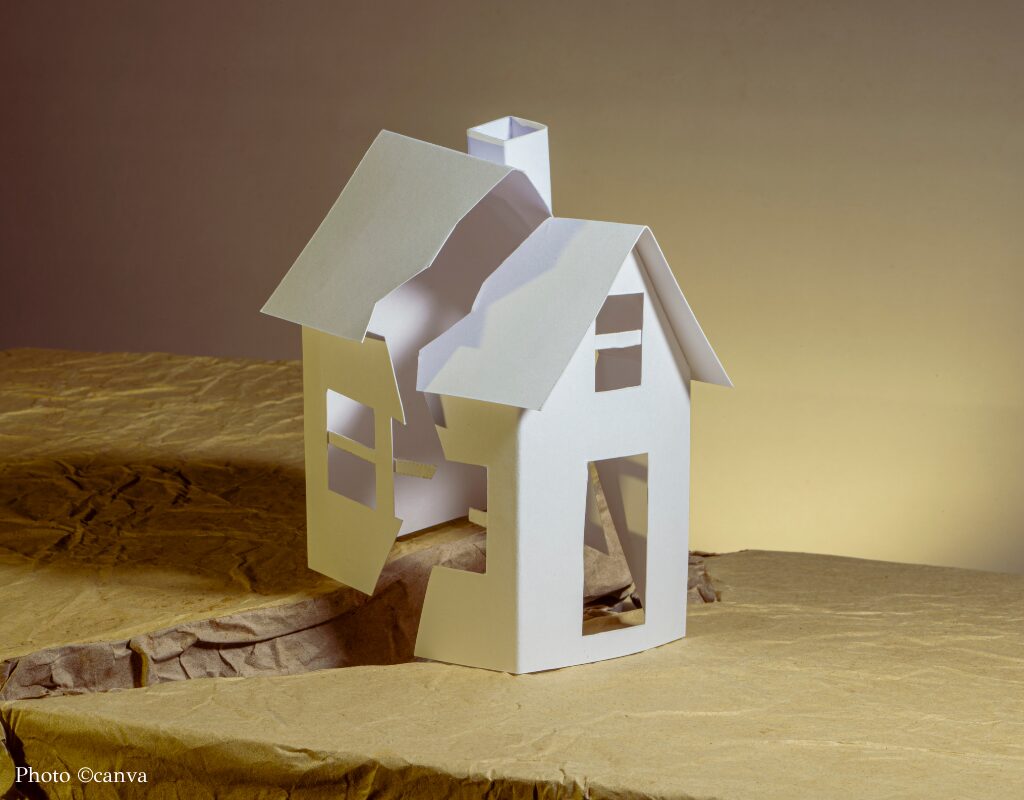If you’re a foreigner thinking about buying an Akiya in Japan, you might feel unsure—maybe the process seems complicated, or you’re concerned about potential risks and things to watch out for.
Akiya can be surprisingly affordable and full of charm, but buying one takes more than just finding a good deal. You need to understand the property’s condition, legal ownership issues, and local regulations before moving forward.
In this article, you’ll learn everything you need to know to buy an Akiya in Japan with confidence. From essential tips to common mistakes, we’ll walk you through the process so you can make a smart and informed decision.
Table of Contents
Profile of Writer
Supervisor
Meiki Sugiyama
Real Estate Transaction Specialist;
After gaining 12 years of experience in the real estate industry as a sales department manager and store manager, transitioned to become a web writer specializing in this field.
Extensive expertise in property sales, rental brokerage, new home sales, rental management, and property valuation, etc. Recognizing the complexity of the Japanese real estate industry, his focus is on delivering and sharing insights to make it more accessible to those who are not specialists in this field.
Related Articles
Chapter 1: Introduction
In recent years, the Akiya market in Japan has drawn increasing attention from international buyers. This chapter explains why now is the time people are focusing on buying Akiya, and whether foreigners can actually purchase real estate in Japan.
Why More People Are Paying Attention to Akiya?
Japan faces a growing Akiya problem. According to the 2023 Housing and Land Survey by the Ministry of Internal Affairs and Communications, the number of vacant homes in Japan has hit a record high of 9 million—an increase of 510,000 from the previous survey five years ago. The vacancy rate now stands at 13.8%, up by 0.2 percentage points.
One of the main reasons Akiya are attracting so much interest is their affordability. Compared to overseas markets, Akiya in Japan—especially those in rural areas—can sell for as little as a few hundred thousand yen. These prices are significantly lower than real estate costs in many other countries.
Traditional Japanese houses, known as kominka, also appeal to foreigners seeking a more cultural or nature-rich lifestyle. In addition, many people see Akiya as opportunities for business—turning them into vacation rentals, guesthouses, or shared office spaces.
These three factors—low prices, flexible use, and cultural appeal—are driving international interest in buying Akiya in Japan.

Can Foreigners Buy Akiya in Japan?
Yes, foreigners can buy Akiya in Japan. There are no restrictions based on nationality or visa status when it comes to purchasing land or buildings. Foreign buyers receive the same ownership rights as Japanese citizens, with no time limits on property ownership. Transactions and inheritance follow the same rules for both locals and foreigners.
While some countries have strict regulations on foreign property ownership, Japan remains one of the more open markets in the world. That said, getting approved for a home loan, obtaining a visa after purchase, or meeting other residency-related requirements may involve additional conditions. If you’re considering buying an Akiya, it’s best to consult with a real estate professional who understands both local laws and the needs of foreign buyers.
Want to know more about buying property as a foreigner? Check out our full guide.
Chapter 2: What Is an Akiya?
According to Japan’s Ministry of Land, Infrastructure, Transport and Tourism, an Akiya is defined as:
A building or a structure attached to it, along with its land (including trees or other objects permanently affixed to the land, as stated in Article 14, Paragraph 2), that remains unused for residential or other purposes for an extended period.
In practice, this usually means a property that has been unoccupied for over a year, with no usage of utilities such as water or electricity.
Why Akiya Have Become a Social Issue?
There are several reasons why Akiya have become a social issue in Japan. These include a declining population, an aging society with fewer children, and people abandoning property management after inheriting homes. Another major reason is that more people are moving to cities, leaving many houses in rural or suburban areas empty.
When left alone, Akiya can become dangerous—they might collapse, attract pests, or increase crime. To address this, the national and local governments have started taking stronger action.
One key step was the introduction of the Act on Special Measures for Promoting Akiya Countermeasures in 2015. This law helps authorities deal with neglected properties and improve safety in local communities.
Source: Ministry of Land, Infrastructure, Transport and Tourism

What is the Akiya Bank?
The Akiya Bank is a service run by local governments that collects information on vacant homes and connects them with people who want to buy or rent. Listings are available online, and anyone can view them. There are also nationwide Akiya Bank websites that allow users to search properties across different regions in one place.
Two major nationwide Akiya Bank platforms are:
In addition, some local governments offer their own support programs, such as renovation subsidies or relocation grants. For example, the following cities offer help with renovation costs:
Adachi Ward, Tokyo – Housing improvement subsidy program
Kyoto City – List of available subsidies
*Please note that these official pages are written in Japanese. To view them in your language, make sure to turn on your browser’s translation feature.
Before buying an Akiya, make sure to check what kind of support programs are available in that area.
Chapter 3: What Foreigners Should Know Before Buying Property in Japan
If you’re thinking about buying a vacant house or other property in Japan, there are a few important things to know first. This section covers the basics for foreigners interested in buying real estate.
1. No Legal Restrictions on Buying
In Japan, there are no legal restrictions on foreigners owning property. You can buy land or buildings regardless of your nationality or visa status. Foreign buyers have the same rights as Japanese citizens when it comes to purchasing, inheriting, or receiving property as a gift. There are also no extra taxes just for being a foreigner.

2. Buying Property Doesn’t Mean You Can Live in Japan
Owning property in Japan does not mean you automatically get a visa or permanent residency. If you want to live in Japan long-term, you’ll need the appropriate visa. Buying a home alone won’t qualify you for immigration status, so make sure to understand this clearly.
3. Getting a Mortgage as a Foreigner
If you need a loan to buy property, it may be harder without permanent residency. Many Japanese banks require applicants to either be Japanese citizens or have permanent residency. With permanent residency, the loan process is similar to that for Japanese buyers—banks will look at your income, job stability, and how long you’ve worked.
If you don’t have permanent residency, you might need to meet extra conditions, such as having a guarantor, a larger down payment, or a long-term visa. Some banks do offer loans to non-residents, but the requirements tend to be stricter. It’s best to compare several banks to find the one that suits your situation.
To learn more, check out the article below.
Chapter 4: Key Points to Consider When Buying an Akiya
To avoid mistakes when purchasing an akiya, it’s important to understand the potential risks in advance. This section highlights six key points to keep in mind.
1. Check for Aging and Earthquake Resistance
When buying an akiya, be sure to check the condition of the building and its earthquake resistance. Even if the house looks good on the outside, it may have hidden issues such as corrosion or leaks.
To properly assess the condition, a home inspection is highly recommended. A home inspection is a professional service where an expert checks areas like the foundation and attic to identify any structural or deterioration issues.
Having a home inspection before buying helps ensure that you can use the property safely and with peace of mind.
For more details on earthquake risks and how to assess them when choosing a home, check out the article below.
2. No Tax Deductions for Properties That Don’t Meet Earthquake Standards
If a property doesn’t meet Japan’s new earthquake standards (新耐震基準 – Shin Taishin Kijun), it won’t qualify for the mortgage tax deduction. This deduction helps reduce income tax and residential tax based on the remaining mortgage balance at the end of the year. In some cases, you can get this deduction for up to 13 years.
To qualify, the property must meet earthquake standards set on June 1, 1981. But even older properties might qualify if you have proof that they are earthquake-resistant.
If you plan to use the mortgage tax deduction, check the year the property was built and if there is a certificate proving its earthquake resistance.

3. Renovation and Repair Needs, and Costs
When buying an abandoned house, it’s important to understand the renovation and repair needs and their costs in advance. Since these houses are often left vacant for long periods, issues like roof damage, wall cracks, plumbing problems, and interior wear are common.
Here are the typical renovation costs:
Kitchen renovation: ¥1M – ¥1.5M
Bathroom renovation: ¥1M – ¥1.5M
Toilet renovation: ¥300K – ¥400K
Flooring renovation: ¥600K – ¥900K
Full renovation: ¥10M – ¥15M
Please note that costs may vary based on the condition of the property and the specific renovation needs. Always request an on-site assessment and estimate from a professional. Without proper budgeting, you may encounter unexpected additional expenses or need extra work, so it’s important to plan with some flexibility in your budget.
4. Land Ownership, Boundary Issues, and Risks of Shared Ownership
When buying property, it’s important to be aware of potential risks like land ownership disputes and boundary issues. Ignoring these risks could lead to serious problems after you purchase the property.
Here are some common issues that can cause trouble:
Boundary disputes: When the property lines with neighboring land are unclear.
Shared ownership: Disagreements between multiple owners of the same property.
Double sale: When the seller sells the same property to more than one buyer.
To avoid boundary disputes, make sure to check the property lines with the neighboring owner. If the property has shared ownership, all owners must agree to the sale, so confirm that everyone is on board before signing the contract. To avoid double sales, it’s best to work with a trusted real estate agent when buying a vacant house.
5. Check Infrastructure Conditions
When buying a vacant house, make sure to check the condition of basic infrastructure. In rural or suburban areas, utilities like water, sewage, electricity, gas, and internet may be outdated or not yet installed.
Some properties may rely on well water, septic tanks, or propane gas. Always visit the property to check what utilities are available and whether extra work is needed to connect them. Depending on the situation, you might face extra installation costs or higher maintenance fees, so it’s important to understand this in advance.
6. Getting Involved in the Community
When buying a vacant house, it’s important to understand how the local community works. In many areas, there are neighborhood rules—like joining the local residents’ association (jichikai), taking part in cleanups, disaster drills, or following specific trash disposal guidelines.
Joining the residents’ association is usually optional, but not joining can limit your access to services like garbage collection or participation in local events. To avoid issues and build good relationships with neighbors, check the community rules ahead of time and consider joining the association if needed.

Chapter 5: Frequently Asked Questions (FAQs)
Finally, here are answers to common questions that foreigners often have when considering buying a vacant house in Japan.
Can I buy a vacant house online?
You can search for vacant houses online through real estate websites and local “akiya banks” (vacant house listings). These platforms let you view properties and make inquiries from anywhere. However, the actual signing of contracts and handover of the property usually needs to be done in person.
Can foreigners apply for renovation subsidies?
Yes, foreigners can apply for renovation subsidies. Most programs offered by local governments or the national government require you to live in Japan and have a resident record (jūminhyō), but they don’t require Japanese citizenship. However, each program has its own rules and required documents, so it’s important to check the details with your local government or the program provider in advance.
A Juminhyo (resident record) is often required when purchasing an Akiya or applying for subsidies. For a step-by-step guide, visit:
Can I Use a Vacant House for Business After Buying It?
Yes, you can use a vacant house for business. Many people turn them into cafés, restaurants, shared offices, or rental spaces. Some business plans or renovations may qualify for subsidies, so check with the local government for details. When you change the use or remodel the house, make sure you follow building rules, fire safety laws, and local zoning rules.
However, if you used a home loan to buy the house, you can’t use it for business until you finish paying off the loan. Home loans are for living purposes only. If you use the house for business without telling the bank, the bank might ask you to pay back the full loan at once.
Can I Rent Out a Vacant House or Use It for Minpaku?
Yes, you can rent out a vacant house or use it as a minpaku (short-term rental). For minpaku, you need to register or get a license under the Minpaku Law or Hotel Business Law. You also need to follow rules about how many days you can rent, what facilities you need, and local city rules.
If you want to rent it long-term, check that the house is safe and make any needed repairs.
Again, if you bought the house with a home loan, you usually can’t rent it out until you finish paying the loan. But if you move for work or go on a long business trip, your bank may allow it if you ask.
If you plan to rent it or run a business, it’s better to get a loan for investment or business use instead.
Chapter 6: Conclusion
Vacant homes in Japan are becoming increasingly popular among foreign buyers, due to their relatively low prices and the growing interest in Japanese culture. While there are no legal restrictions on property ownership for foreigners, it is important to carefully consider factors such as visa status, mortgage eligibility, the property’s condition, and whether it meets current earthquake safety standards.
To ensure a safe and secure purchase, be sure to conduct thorough research in advance and consult with qualified professionals.





